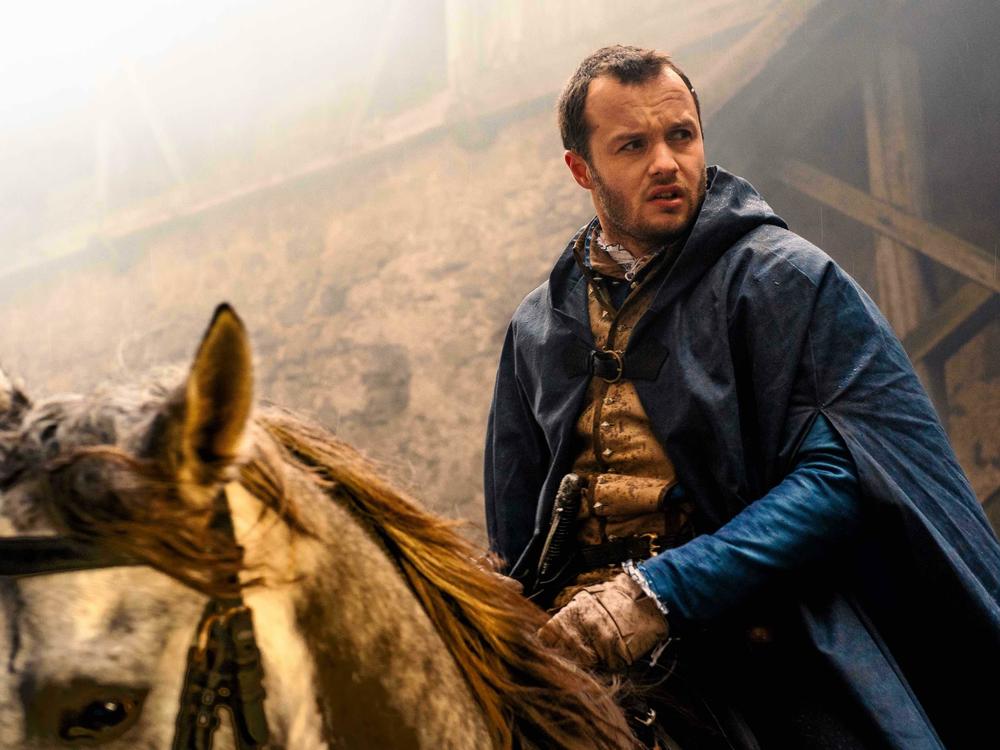Section Branding
Header Content
Beautifully acted 'Shardlake' brings 500-year-old Tudor intrigue into the present day
Primary Content
We live in discordant times, which may be why the turbulent reign of King Henry VIII has enjoyed a revival over the last few years. We've had the gleefully trashy TV series The Tudors, the Tony-winning Broadway musical Six and – at the high end of achievement – Hilary Mantel's trilogy about Henry's right-hand-man Thomas Cromwell.
Now comes the new Hulu mystery series Shardlake, based on C.J. Sansom's first novel in a series about a crime-solving lawyer in 16th-century England. As a rule, I hate historical mysteries and I feared that Shardlake would serve up the Tudor era's usual cavalcade of castles, codpieces, clopping horses and quasi-Shakespearean lingo – "Prithee, stop, sirrah!" But to my surprise this odd, beautifully acted show pulled me in.
Arthur Hughes stars as Matthew Shardlake, a bitingly intense London barrister known for his brains and for the curved spine that leads the world to undervalue him. One who sees his value is the king's minister Thomas Cromwell – played by a domineering Sean Bean – a dangerous man who's busy stripping the assets of the Catholic church and claiming them for the Crown.
As the action begins, Cromwell has just had his envoy murdered in a coastal monastery. He sends Shardlake to find the killer and, in the process, to find evidence of monkish malfeasance that will justify seizing the monastery's holdings. To keep Shardlake on his toes, he sends along one of his henchmen, brash, impulsive Jack Barak. That's Anthony Boyle, who plays John Wilkes Booth in the current series Manhunt.
Because the monastery is filled with Catholic monks who hate the Protestant king, things are tricky there from the get-go. Not only do Shardlake and Jack keep being lied to, but the murders are just beginning. As they investigate, they both grow smitten with a servant – played by Ruby Ashbourne Serkis – and they start to develop one of those classic detective story partnerships between a brilliant misfit and an earthier, ordinary guy.
Now, I don't want to oversell Shardlake. As a historical show, it lacks the sweeping grandeur of Shogun, another period drama that reminds us that Protestants and Catholics were once at each other's throats. Nor does it approach Mantel's richly vibrant vision of Henry VIII's England, with its divisions and hatreds and social climbing.
Yet it has a strong historical atmosphere, especially in showing how Shardlake and Jack find themselves squeezed by powerful forces around them. Both believe they're doing the right thing in helping Cromwell seize Catholic wealth, thinking it should go to England's countless poor people. At the same time, they come to realize that, in Cromwell, they're working for an utterly ruthless politician, one who may have played a key role in setting up Anne Boleyn, whose beheading figures into the plot here.
The show's finest moments lie in the byplay between its lead actors, played by two of Britain's rising stars. As the cocky Jack – a lad risen from the streets and terrified of sinking back – Boyle deftly straddles the line between likable and not. You see why he's been cast to star as a charismatic IRA leader in the upcoming TV adaptation of Patrick Radden Keefe's book Say Nothing.
Jack's extroversion pairs nicely with the tightly wound Shardlake, whose smile is almost a wince. Hughes was the first actor with a disability to ever play Richard III for the Royal Shakespeare Company – he was born radial dysplasia affecting his right arm – and he doubtless understands Shardlake's pride in the face of what some consider his physical imperfection. "I'm known for my gait," Shardlake says. "It is I, and I embrace it."
Such self-assertion is profoundly modern, and for all its Tudor trappings, Shardlake is filled with present day resonances – not least in its portrait of Cromwell who claims to speak for the people but actually works on behalf of the elite. "The truth must be what we want it to be," Cromwell declares, and though Shardlake knows this is un-true, he also knows that saying so can get a man killed.

